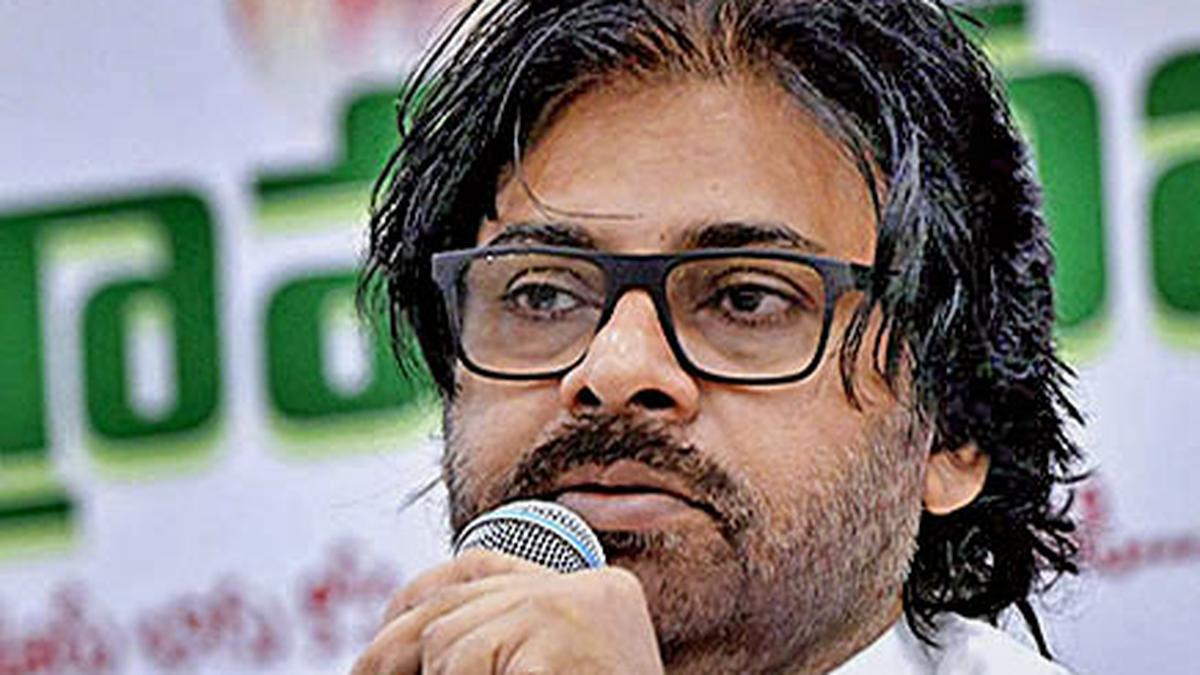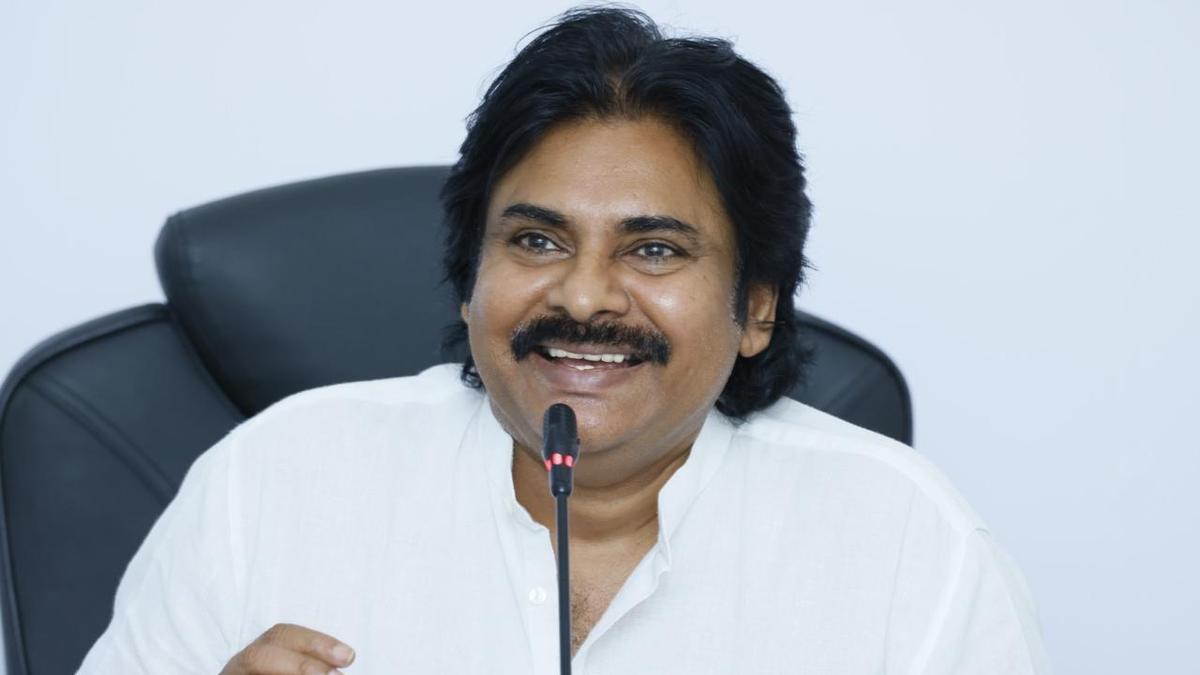As I stood in Pithapuram, witnessing the inauguration of 12,500 mini-Gokulam sheds, it struck me how power is often misconstrued as a badge of honor rather than a mantle of responsibility. Deputy Chief Minister Pawan Kalyan embodies this notion, emphasizing that holding a position of power is about serving the community rather than seeking personal gain. This blog post delves into how he is driving the initiative of rural development while promoting responsible governance.
The Launch of Gokulam Sheds: A Step Towards Rural Development
Recently, I had the privilege of witnessing a significant event in our community. Deputy Chief Minister Pawan Kalyan formally inaugurated 12,500 mini-Gokulam sheds across the state. This initiative is not just a number; it represents a vital step towards supporting our dairy farmers and enhancing rural development.
What Are Gokulam Sheds?
Gokulam sheds are specially designed structures that provide shelter for dairy cows. They are essential for sustainable dairy farming. Each shed costs around ₹1.85 lakh, a worthy investment considering the benefits they bring. But why are these sheds so important? Well, they help improve the living conditions of the cows, which in turn increases milk production. More milk means more income for farmers. It’s a win-win situation!
Support for Dairy Farmers
The launch of these sheds is part of a broader initiative to support dairy farmers under the Mahatma Gandhi National Rural Employment Guarantee Act. This act aims to provide at least 100 days of wage employment in a financial year to every rural household. By integrating dairy farming into this framework, we are not only providing jobs but also fostering local entrepreneurship.
- Direct impact on local livelihoods: More dairy production leads to increased income for farmers.
- Economic growth: As farmers thrive, the local economy flourishes.
Isn’t it fascinating how a simple shed can change lives? It’s not just about cows; it’s about families, communities, and the economy. When farmers succeed, we all benefit.
Quotes That Inspire
During the inauguration, Pawan Kalyan emphasized the importance of collective responsibility. He stated,
"Development should be a collective effort, and responsibility lies with every one of us."This quote resonates deeply with me. It reminds us that we all have a role to play in our community’s growth.
Exhibitions and Community Engagement
After the launch, I attended an exhibition organized by the Animal Husbandry Department. It showcased various facilities available for dairy farmers. There were displays on fodder, livestock, and other essential resources. I was particularly impressed by the fodder cutting machines provided at a subsidy. These machines can significantly reduce the labor involved in preparing feed for the cows.
Moreover, Pawan Kalyan took the time to examine a poster detailing the development works completed in the Pithapuram constituency. It’s refreshing to see leaders engaging with the community and understanding their needs.
The Bigger Picture
Launching 12,500 mini-Gokulam sheds is just one part of a larger vision for rural development. It’s about creating a sustainable future for our farmers. It’s about ensuring that they have the tools and resources they need to thrive. And it’s about fostering a sense of community where everyone contributes to each other’s success.
As I reflect on this event, I can’t help but feel optimistic. The Gokulam sheds are more than just structures; they are symbols of hope and progress. They represent a commitment to our farmers and a recognition of their hard work.
In conclusion, the launch of these sheds marks a pivotal moment for rural development in our state. It’s a step towards empowering our dairy farmers and boosting the local economy. I look forward to seeing the positive changes this initiative will bring to our community.
Engaging with the Community: Insights from Pawan Kalyan's Visits
Recently, I had the opportunity to observe Pawan Kalyan's visits across various locations in his constituency. His approach is refreshing and deeply rooted in community engagement. It’s not just about politics; it’s about connecting with the people. Let’s dive into some key aspects of his visits.
1. Inspection of Dairy Facilities
Pawan Kalyan took a hands-on approach by inspecting dairy facilities. This is significant. Why? Because it shows he cares about the farmers' needs. He launched 12,500 mini-Gokulam sheds across the state. These sheds are not just structures; they represent a lifeline for many farmers. Each shed was built under the Mahatma Gandhi National Rural Employment Guarantee Act, costing around Rs 1.85 lakh. This investment is crucial for improving dairy farming in the region.
During his visit, he also toured an exhibition organized by the Animal Husbandry Department. The exhibition showcased various facilities available to dairy farmers. From fodder to livestock, everything was on display. It was a great opportunity for farmers to learn about the resources available to them. Pawan Kalyan’s inquiry about the fodder cutting machine provided at a subsidy was particularly noteworthy. It shows he is not just a figurehead; he is actively seeking solutions for the community.
2. Public Meetings for Regional Development
Public meetings are another vital aspect of Pawan Kalyan's visits. These gatherings serve as a platform for discussing regional development. They allow citizens to voice their concerns and provide feedback. Isn’t it essential for leaders to listen to the people they serve? Pawan Kalyan believes it is. He stated,
"It's crucial to understand the voices of the people we serve."This quote encapsulates his philosophy of governance.
During these meetings, he emphasizes the importance of community involvement. By engaging directly with citizens, he fosters trust in governance. It’s a two-way street. The community feels valued, and in return, they are more likely to support initiatives that benefit them. This approach is vital for effective leadership. Feedback mechanisms are not just a formality; they are essential for understanding the needs of the people.
3. Celebrating Sankranti with Locals
Participation in local festivals is another way Pawan Kalyan connects with the community. His involvement in the Sankranti celebrations was a highlight of his recent visits. Festivals are a time for joy and unity. By joining in the celebrations, he shows that he is one of them. It’s not just about politics; it’s about culture and community.
During the Sankranti festivities, he visited stalls set up by various departments. This allowed him to see firsthand the services provided to the people. It’s a great way to understand local needs and challenges. By being present, he reinforces the idea that governance is not distant; it’s right here among us.
Building Trust Through Engagement
Involving the community in governance is crucial. It fosters trust and encourages participation. When leaders like Pawan Kalyan take the time to engage with citizens, it creates a sense of belonging. People feel heard and valued. This is essential for a healthy democracy.
Moreover, feedback mechanisms are vital. They allow leaders to adapt and respond to the changing needs of the community. Pawan Kalyan’s visits are a testament to this principle. He is not just a leader; he is a listener. He understands that effective leadership requires understanding the local context.
In conclusion, Pawan Kalyan's visits across the constituency are more than just political appearances. They are a commitment to engaging with citizens directly. By inspecting dairy facilities, holding public meetings, and celebrating local festivals, he demonstrates a genuine interest in the community's well-being. His approach is a model for how leaders can effectively connect with the people they serve.
Fostering Wildlife Conservation: A Broader Responsibility
Wildlife conservation is not just a responsibility; it’s a necessity. As we navigate through our daily lives, we often overlook the delicate balance of nature surrounding us. Recently, the tragic deaths of Olive Ridley turtles have sparked a conversation about the urgent need for wildlife protection initiatives. These turtles are not just creatures of the sea; they are a vital part of our ecosystem. Their decline is a warning sign that we cannot ignore.
Awareness Regarding Local Wildlife Protection Initiatives
Awareness is the first step toward action. Many local wildlife protection initiatives aim to safeguard our natural heritage. These programs often rely on community involvement. When we participate, we become part of the solution. We can help educate others about the importance of protecting wildlife. For instance, local workshops and community meetings can spread knowledge about conservation efforts. But how many of us actually attend these events? Are we doing enough to support these initiatives?
In my view, it’s crucial to engage with these programs. They often provide resources and information that can empower us to make a difference. By staying informed, we can advocate for policies that protect our wildlife. We can also support local organizations that work tirelessly to conserve our natural habitats.
Response to Recent Deaths of Olive Ridley Turtles
The recent deaths of Olive Ridley turtles have raised alarm bells. These turtles are known for their unique nesting behavior along the coasts. When they face threats, it’s not just their survival at stake; it’s the health of our oceans. The causes of their deaths can range from pollution to habitat destruction. Each death is a reminder of our impact on the environment.
As Pawan Kalyan stated,
“A responsible leader also prioritizes planetary health alongside community health.”This quote resonates deeply with me. It emphasizes that our leaders must take wildlife conservation seriously. They should investigate the causes of these deaths and implement measures to prevent further loss. It’s not just about saving turtles; it’s about preserving our planet for future generations.
Call for Collaborative Efforts in Wildlife Conservation
Collaboration is key in wildlife conservation. It’s not a task that can be accomplished by a single entity. We need to come together—governments, organizations, and individuals. Each of us has a role to play. By working together, we can create a more significant impact.
Community-based conservation practices can yield positive outcomes. When local communities are involved, they often take ownership of conservation efforts. They understand the land and its wildlife better than anyone else. This local knowledge is invaluable. It can lead to innovative solutions that benefit both wildlife and the community.
Moreover, collaborative efforts can help raise funds and resources for conservation projects. When we unite, our voices become louder. We can advocate for stronger laws and regulations to protect our wildlife. We can push for sustainable practices that benefit both the environment and local economies.
Conclusion
In conclusion, fostering wildlife conservation is a broader responsibility that we all share. It requires awareness, action, and collaboration. The deaths of Olive Ridley turtles serve as a wake-up call. They remind us of the fragility of our ecosystems. As we move forward, let’s prioritize wildlife protection initiatives in our communities. Let’s support our leaders in their efforts to safeguard our planet. Together, we can create a future where wildlife thrives alongside us. After all, protecting our wildlife is not just about saving animals; it’s about preserving our planet for generations to come.



